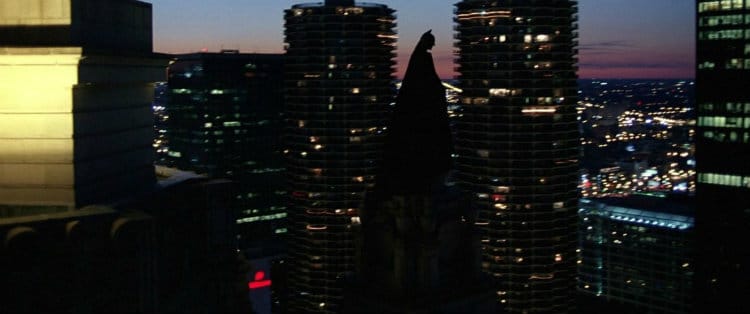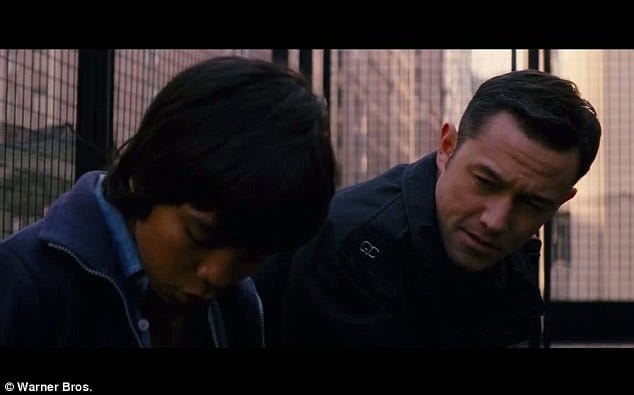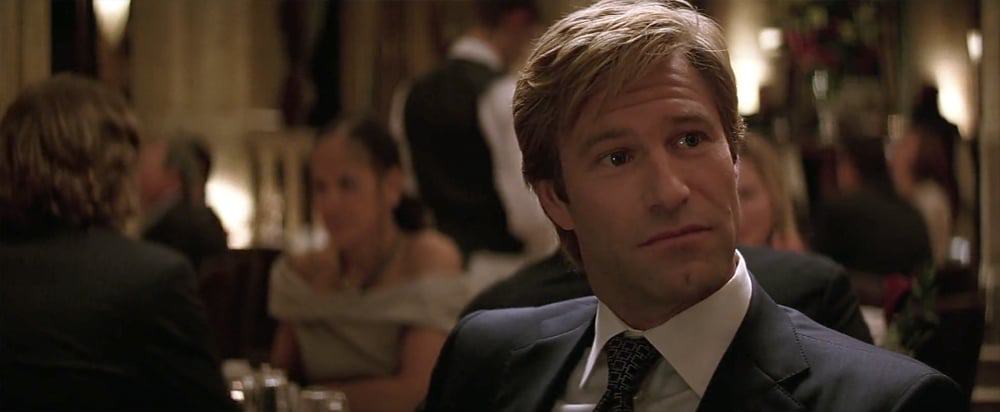
In Batman Begins, Bruce Wayne spends a lot of time talking about fear, justice, and how Batman is supposed to be a symbol. Symbol this, symbol that, symbol of justice, whatever. All Might has got you.
But in a world without All Might, fair enough. Let’s take a look at everyone’s favorite comic book movie, The Dark Knight, and see what Batman is a symbol of, and to whom.
To Mob Bosses: A Nightmare
For the organized crime of Gotham, Batman is a nightmare. Batman is not a contingency in any operation that the mob can plan for. If he shows up, he’s going to wreck your day, but you don’t know how, when, or even if he’ll show up. At the beginning of the film, they have been actively evading and avoiding him, largely thanks to Lao, the accountant, but Batman is tracking them down, and they’re worried, hence the meeting of bosses that the Joker crashes. They just can’t seem to beat him, and he’s always one step ahead. Truly a man to be feared.
To Street-Level Criminals: A Jobs Killer
They may work for the mob, but that doesn’t mean they like it, and the presence of the Batman in their city means their job security is going further down every day. Those that Batman doesn’t put in prison either continue their criminal enterprises with a smaller team and get caught or quit the life and try to go straight. Which means that Batman, the symbol, is working, even if it’s through fear. The world of public welfare and multiple minimum-wage gigs may be cold, but it’s warmer than jail. These are the guys who Harvey says “can’t afford to be off the streets” and will “cut deals.”
To the Youth: An Urban Legend or Superhero
There are a lot of different types of young people in Gotham, just as there are in real life. But we are given glimpses into the attitudes of at least two types of youth toward Gotham; the young drug dealer views him as an urban legend, while his customer, who bails, is openly afraid of him. So youth that is already part of the organized crime machine may be skeptical, since Batman doesn’t always swoop down from above on every petty drug dealer, but at-risk or more apprehensive youth are successfully being kept out of the system by Batman. I’d say that’s a win!

Kids, like Gordon’s son, view Batman with the same superhero worship that one would expect from kids towards a costumed do-gooder in a crime-filled city. These kids grow up to be the orphaned youths in The Dark Knight Rises who still believe in Batman; Joseph Gordon-Levitt was probably their leader before he became a cop (inspired to justice by Batman). These kids were too young to really understand the morally thematic events of The Dark Knight. They just know that there was a terrorist situation and that Batman saved the city by punching the Joker in the face. Sure, he killed Harvey Dent, but that means no school on Harvey Dent Day.
To Adult Citizens: An Equal or an Inferior
Obviously, the adults are concerned with what would possess someone just like them to get super in shape and get their hands on all this cool technology solely for the purpose of fighting crime directly, in the night, with punching. Batman’s mere presence may have caused many a Gothamite to have a midlife crisis, which seems to be happening with the fake Batmen with shotguns that appear during the first scene of The Dark Knight. “If someone else can do it, why can’t I? What have I been doing my whole life?” Harvey Dent took an attitude like this and turned it into a positive (more on him later), but I’m sure the wife of that guy in the hockey pads who the Joker killed hates the genuine article for “inspiring” her husband.
For their part, it seems the wealthy of Gotham (the ones that The Dark Knight Rises would go on to call out) didn’t mind Batman, but he didn’t affect their own lives since they were mostly insulated from crime by nature of the system anyway. Heck, at least a few of them thought of him as beneath themselves, notable in the dinner conversations that Bruce Wayne frequently finds himself part of during the first two films. As The Dark Knight shows, it was only when the negative consequences — namely, the creepy clown-faced serial killer whose publicly televised motive was the unmasking of Batman — started rearing their ugly heads that the voting public started to be concerned with what he was doing and trying to control him.
To Harvey Dent: An Idol

“You either die a hero or see yourself become the villain.”
Harvey’s got a… complicated relationship with Batman. He was clearly inspired to do good by Batman, given his admiration for the Caped Crusader (revisit quotes like “We [appointed the Batman]. When we sit by and let scum take control of our city”). Unlike the hockey pad guy, Dent seems to have applied a token of sense to his sudden desire to see justice in Gotham and used his law degree, instead of a couple hundred bucks at a sporting goods store.
However, Harvey doesn’t seem to see his position or his deeds as worthy of praise. Uniquely, he seems to see the moral code by which he has to work as a hindrance and is envious of Batman in this way. From his interrogation of the Joker gunman, he clearly sees due process as a hindrance to the true justice he envisions. While Batman sees Dent as a pure and good paladin, ready to take up the torch of justice as Bruce runs away with his girlfriend, Dent sees himself as merely a player in the Batman’s support network for actually jailing the criminals he captures. He’s even ready to see the legacy of Batman continue; this shines a whole new light on his comments on the Batman’s retirement and successor. He didn’t mean himself, as a symbol of justice. He meant the permanency of The Batman, the symbol of fear (as played by himself, maybe, if he’s up to it). In a way, Harvey’s ability to do justice, and indeed his idea of justice itself, is clouded by his idolization of Batman.
To Commissioner Gordon: A True Hero

“I think you’re trying to help. But I’ve been wrong before…”
He may have earned Batman’s trust through acts of kindness performed years ago, but Gordon doesn’t really know anything about Batman. Not his secret identity, not his financing, just a motive: “I’m someone who’ll rattle the cages.” When they first begin working together, Gordon has no idea if Batman is doing this for revenge like a normal vigilante or an altruistic cause or just because he’s insane; he even compares Batman to the Joker at the end of Batman Begins, presumably when the latter is a new player in the game of Gotham’s organized crime. But by the end of The Dark Knight, he seems to trust Batman fully and see him as a true hero, masked only by the literal physical mask and not the urban legend or fear that affects the perceptions of the rank and file populace of Gotham City.
Gordon probably knows Batman better than anyone besides Alfred and Rachel, and maybe even better than them, because he sees Batman as just Batman, not Bruce Wayne. To Gordon, Batman’s alter ego as a billionaire playboy doesn’t matter; he doesn’t even know about it. All Gordon knows is that he works with some mysterious, super-fit, surprisingly well-funded dude who’s crazy enough to dress up like a bat and jump around the rooftops of Gotham. But he’s the kind of guy who’d do anything to save the city, and to Gordon, that’s all that matters.
Related Topics: Batman

